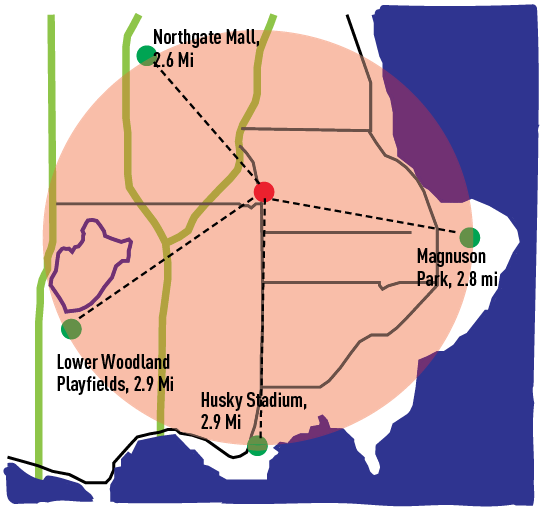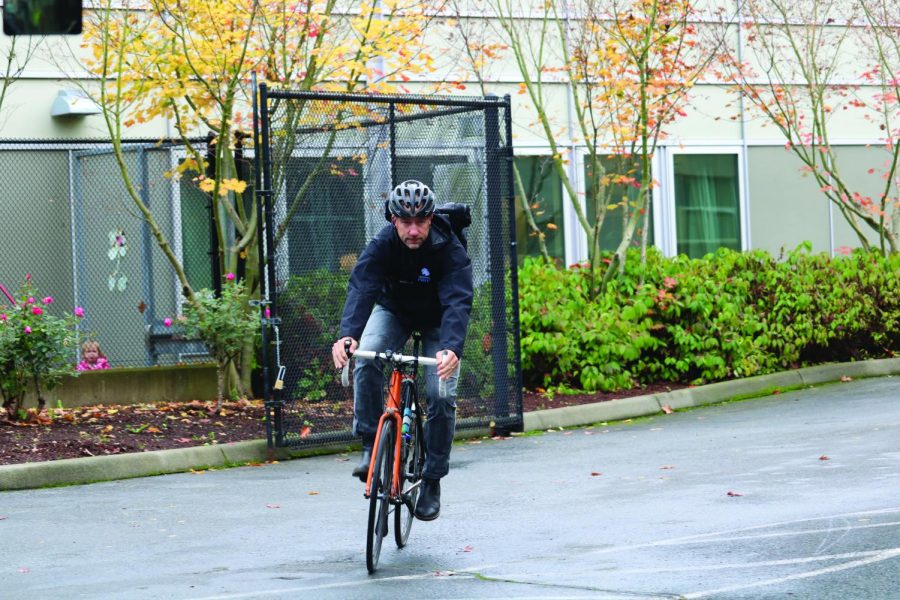Living Life Sustainably
Doing the little things to help the environment
Photo: Wally Bargeron
English teacher Alec Duxbury rides his bike. Duxbury rides his bike to school nearly every day — he knows how important sustainable transportation is to the environment.
Thirty years. That’s about how long we have until the world has to be at “net-zero carbon emissions,” according to a recent United Nations’ special report on the mounting risk of climate change.
The Paris Climate accord, a landmark 2015 U.N. agreement between numerous countries to actively work against pollution and climate change, will not be enough to meet this goal.
The recent U.N. report, known as SR-15, says that countries have to retain our warming to 1.5 degrees celcius (about 2.8 degrees Fahrenheit) or else risk intensified national disasters of all kinds (like wildfires, droughts, etc.) that would put millions at risk.
Hope, however, is not lost. Many members of the University Prep community have committed themselves to lifestyles that support the fight against climate change.
Sophomore Katie Ferguson is vegan. She chooses to do this for many reasons, including for animal rights. However, she also knows that the economy around and sale of meat is very bad for the environment
Ferguson said she doesn’t “feel justified to eat meat and animal products” for these reasons.
UPrep students and faculty also battle climate change by being mindful about how they get to school each day.
English teacher Alec Duxbury bikes to school almost every day. It’s his primary form of exercise, and he thinks it should be everyone else’s as well.
“You should try to ride your bike anywhere that’s within three miles of your house,” Duxbury said.
Duxbury owns a car, but he rarely uses it — he knows how bad it is for the environment.
“There really isn’t a time when I turn the key to my car that I don’t think about [the climate],” he said.
Duxbury is confident in a bike commuter’s ability to help the environment. He calls it “saving the world one bike ride to school at a time.”
P.E. teacher Kayla Robertson also does what she can to encourage others to bike to school.
Every May, Robertson partners with Cascade Bicycle club and helps to organize Bike to School Month. During this month, Robertson encourages students to become bike commuters, especially if they live close to school. Robertson helps to set up “celebration stations,” rewarding those who bike to school with donuts.
During school, many courses are offered at UPrep with a focus on environmentalism. One environmentally-minded course offered at Uprep is Environmental Ethics and Advocacy.
Karen Sherwood, one teacher of the course, said that it’s meant to teach students about environmental issues and the ethical responsibility of dealing with them.
Ciaran Healey is a current Environmental Ethics and Advocacy student. He said that, while he feels he’s always been considerate of the environment, the course is teaching him the immediacy of climate change.
Healey said, for instance, that walking, busing or biking instead of driving “must become simply habits. There’s no other option. There’s no time to say that [it’s] too hard.”
Ultimately, Duxbury said it’s worth it to take care of the environment for the next generations. He said taking care of the environment is “what I owe to the people that I’m taking care of the world for — my great-grandchildren.”
What Does 3 Miles From School Look Like?
Duxbury says, “you should try to ride your bike anywhere that’s within 3 miles of your house.” Here are some examples of what that looks like for UPrep.

Graphic: Wally Bargeron
Your donation will support the student journalists of UPrep.


